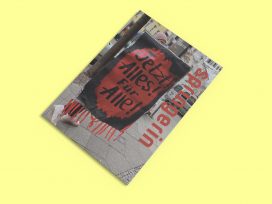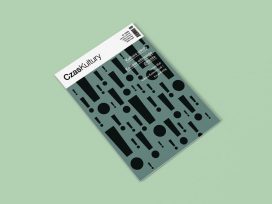What the corona crisis teaches us about the human side of medicine; how France’s response has revealed the impact of decades of neoliberalism; and why the pandemic may shake up the country’s education system.
 We should see corona lockdown as an opportunity to better understand the lives of the less fortunate, writes Claire Marin in Esprit. This ‘time of anxious waiting, where one hopes for good news while being conscious that the threat is great, loss inevitable and death ever-present’, has long been a reality for the sick, the disabled and the elderly. The current crisis is therefore an occasion for more attention to the human side of medicine, an acknowledgement of dependency, and an appreciation of ‘health as a public good’.
We should see corona lockdown as an opportunity to better understand the lives of the less fortunate, writes Claire Marin in Esprit. This ‘time of anxious waiting, where one hopes for good news while being conscious that the threat is great, loss inevitable and death ever-present’, has long been a reality for the sick, the disabled and the elderly. The current crisis is therefore an occasion for more attention to the human side of medicine, an acknowledgement of dependency, and an appreciation of ‘health as a public good’.
Healthcare and democracy
France’s pandemic response has led to further centralization and revealed the impact upon healthcare of decades of neoliberalism, write Fabienne Brugère and Guillaume le Blanc. With policies dictated by expert committees, vertical structures of power are thriving while democratic and community healthcare policies are rolled back.
COVID-19 has reshaped the political subject, now stripped of autonomy and reduced to survival mode. Protecting this ‘non-sovereign life’ means resisting the further de-democratization of healthcare and preventing it from being ‘stripped of all existential meaning’ by the ‘technical arsenal of the hospital’.
Education
François Dubet salutes teachers whose dedication and creativity in devising ways to ‘work otherwise’ is making a real difference. When life finally returns to ‘normal’, the pandemic may serve to shake up the ‘homogeneity of the education system’ and see greater trust placed in ‘the inventiveness and enthusiasm of teachers’.
Yet the crisis has also revealed the limitations of virtual schooling, reminding us that teaching is more than the transmission of knowledge, and that home learning is no substitute for school as a collective experience. Families’ economic dependency upon regular schooling has been thrown into sharp relief, along with the many forms of inequality between students.
Also: Ramin Jahanbegloo on how Hobbes sheds light on the political situation in Iran; Jean-Luc Nancy on a new scholarly edition of the Koran; Gilles Bataillon pays homage to the late Venezuelan poet Ernesto Cardenal; and an interview with current president of the Palais de Tokyo, Emma Lavigne.
More articles from Esprit in Eurozine; Esprit’s website
This article is part of the 9/2020 Eurozine review. Click here to subscribe to our weekly newsletter, to get updates on reviews and our latest publishing.

This article was published in cooperation with CAIRN International Edition, translated and edited by Cadenza Academic Translations.
Published 22 May 2020
Original in English
© Eurozine
PDF/PRINTPublished in
In collaboration with
Newsletter
Subscribe to know what’s worth thinking about.
Related Articles

France risks becoming ungovernable. While Macron’s autocratic style is much to blame for the current impasse, the fundamental problem lies in the development of the parties and party elites.

The Courts have acquiesced, the populace is compliant and the Democratic Party is splintered. Without any way to make their opposition felt, Trump’s opponents’ only hope is that the economy will cause MAGA voters to rethink.










